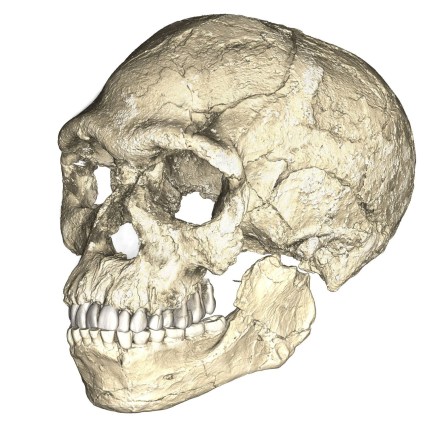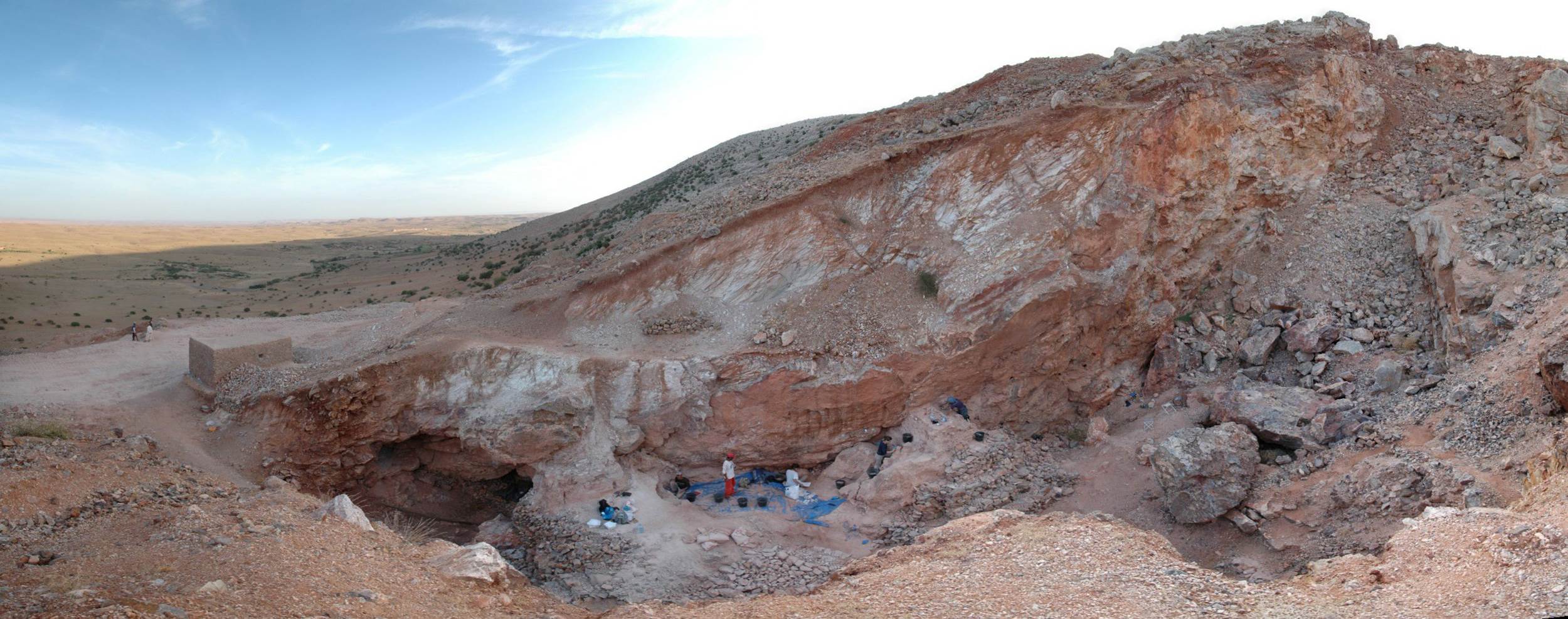Humans evolved much earlier than previously thought.
Bones discovered in a Morocco cave add 100,000 years to the timeline for modern humans, researchers revealed Wednesday. The find rewrites the origins of mankind and suggests modern humans evolved at multiple locations across Africa, instead of just one region in East Africa.
Prior to these findings, the earliest known fossilized remains, at 195,000 years old, were found in present-day Ethiopia. By contrast, the discovery made at Jebel Irhoud, near Marrakech, is between 300,000 and 350,000 years old.

The fossils, which included pieces of a jaw and skull, came from five individuals —three adults and two children. Stone tools, animal bones, and evidence of a fire suggest the hunted and cooked game much earlier than scientists previously thought.
Facial features of the skull bear resemble current humans, but the brains show characteristics of earlier homo sapiens and were more elongated.
An international team of anthropologists, paleontologists, and evolutionary scientists detailed their find in two papers published in Nature.
This article was featured in the InsideHook newsletter. Sign up now.























